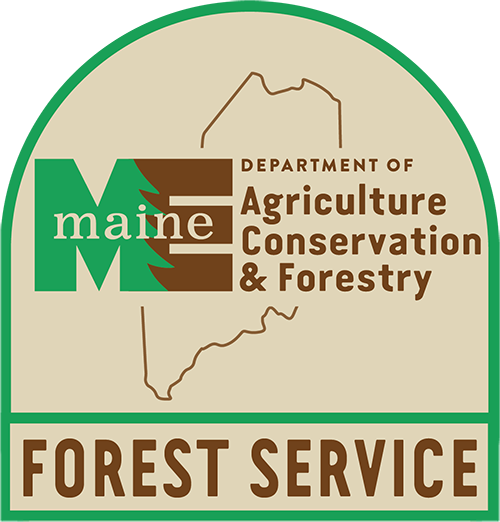Bureau/Division/Agency
Forest Services
Document Type
Text
Exact Creation Date
7-2024
Language
English
Recommended Citation
Department of Agriculture, Conservation and Forestry and Maine Forest Service, "Maine Forestry Best Management Practices (BMP) Use and Effectiveness—Data Summary 2022-2023" (2024). Forest Service Documents. 311.
https://digitalmaine.com/for_docs/311
File Size
1.4 MB
Files over 3MB may be slow to open. For best results, right-click and select "Save As"
Rights Statement
No Copyright - United States. URI: http://rightsstatements.org/vocab/NoC-US/1.0/
The organization that has made the Item available believes that the Item is in the Public Domain under the laws of the United States, but a determination was not made as to its copyright status under the copyright laws of other countries. The Item may not be in the Public Domain under the laws of other countries. Please refer to the organization that has made the Item available for more information.



Description
The Maine Forest Service (MFS) has conducted statewide monitoring of Best Management Practices (BMPs) on timber harvesting operations since 2000. The objective of this ongoing effort is to assess the use and effectiveness of BMPs in Maine. The Maine BMP monitoring effort helps to identify any potential issues, track progress through the years and measure outcomes. Through BMP monitoring, MFS and the forestry community as a whole can assess the implementation and effectiveness of particular BMPs, identify areas for improvement and additional training needs, and ensure that we are meeting the objective of BMPs to protect water quality in Maine’s streams, rivers, lakes, and wetlands.
Maine’s BMP monitoring relies on sampling timber harvest operations identified from Forest Operations Notifications (FONs). Landowners are required to notify the MFS before harvesting takes place per MRSA Title 12 §8883-B. Approximately 3,000 FONs are filed in Maine each year. Over 5,000 two-year FONs may be active at any given time. Samples are randomly drawn from these notifications; the method for selecting samples is explained later in this report. This report presents an analysis of data collected from 78 timber harvesting sites over two field seasons, in roughly equal numbers, from 2022 and 2023. MFS continues this monitoring effort as a part of regular field activities during the snow-free portions of each year and generates this report every two years.
This report finds a slight decrease of sedimentation at crossing structures since the last report. When sedimentation was observed it was most often due to inadequate application of initial BMPs at the crossing structure during installation and close out, as well as no application of BMPs in some sites. Sedimentation at the crossing structure has been a focus area of improvement since preliminary findings in 2016. Based on these results, as well as results reported in 2021, MFS and partners have launched a new BMP training program; Fundamental BMPs to Protect Water Quality on Haul Roads and Skid Trails, emphasizing BMP implementation using a systems approach. MFS has hosted 10 such trainings statewide during spring and fall seasons of 2021-2023. Additional trainings are planned for 2024.
Future trainings will emphasize design and installation of BMPs at crossing structures. This includes initial installation of adequate BMPs during installation and closeout of crossing structures. Trainings should also focus on proper culvert sizing, as the prevalence of scouring observed among single culverts suggests that culverts are frequently undersized.
MFS has also worked with partners in 2023 to develop a new training program focused on planning and installation of crossing structures. The training, titled Planning and Installation of Stream Crossings on Haul Roads and Skid Trails, emphasizes crossing avoidance, use of temporary bridges and use of open bottom structures where permanent structures are appropriate. It promotes practices to address proper sizing of crossing structures to match channel conditions, sedimentation, aquatic organism passage, and resiliency against extreme weather events. This training program is scheduled to be available in spring of 2024.
Finally, MFS provides annual training for MFS District Foresters to maintain and improve BMP monitoring procedures, with an emphasis on objectivity and consistency of field assessments. MFS employs a quality control process involving re-sampling of a subset of sites by a QA/QC team, made up of the MFS Water Resources Specialist and Field Team Leader, to improve consistency in the use of the protocol and interpretation of field observations.